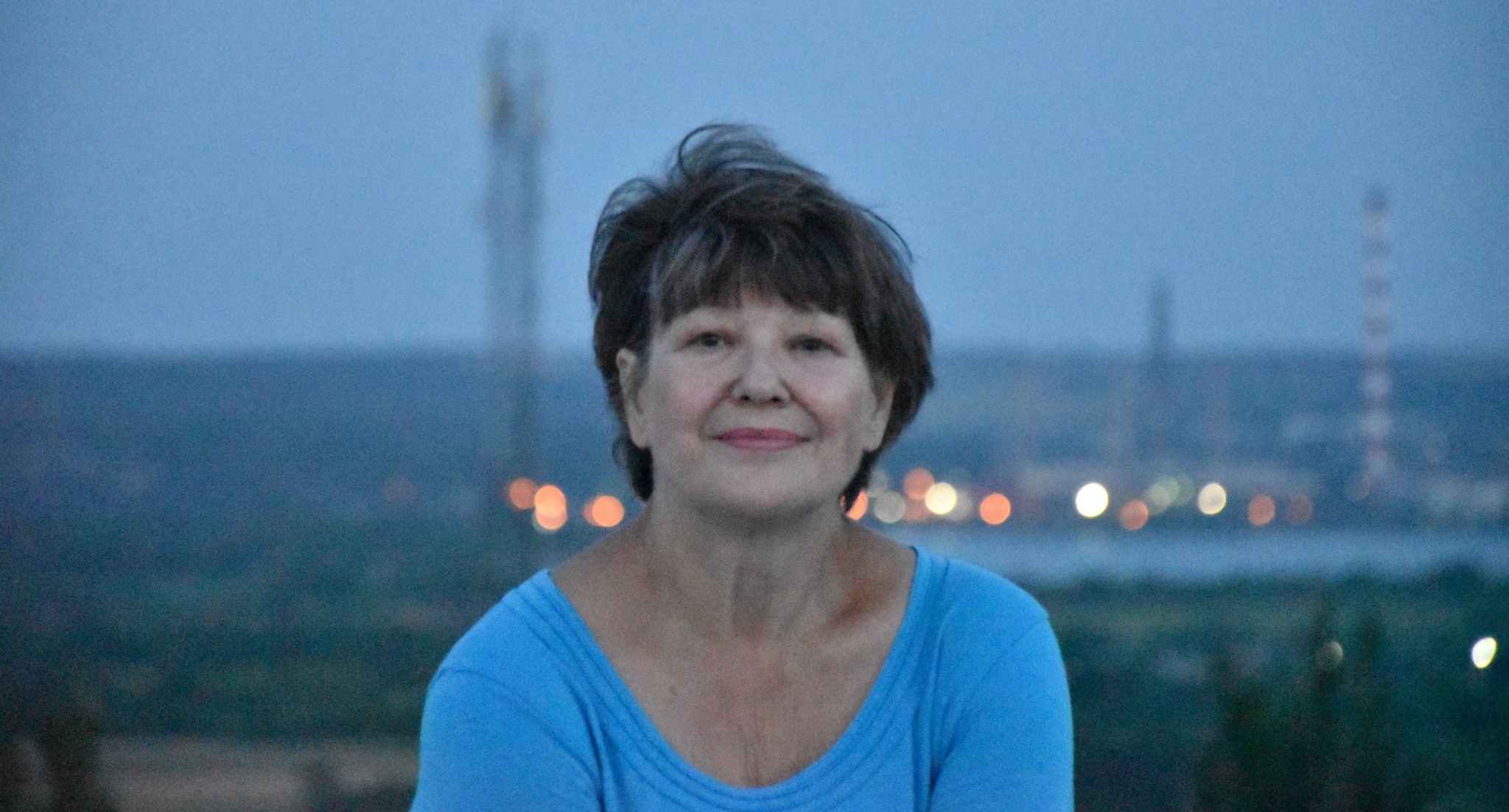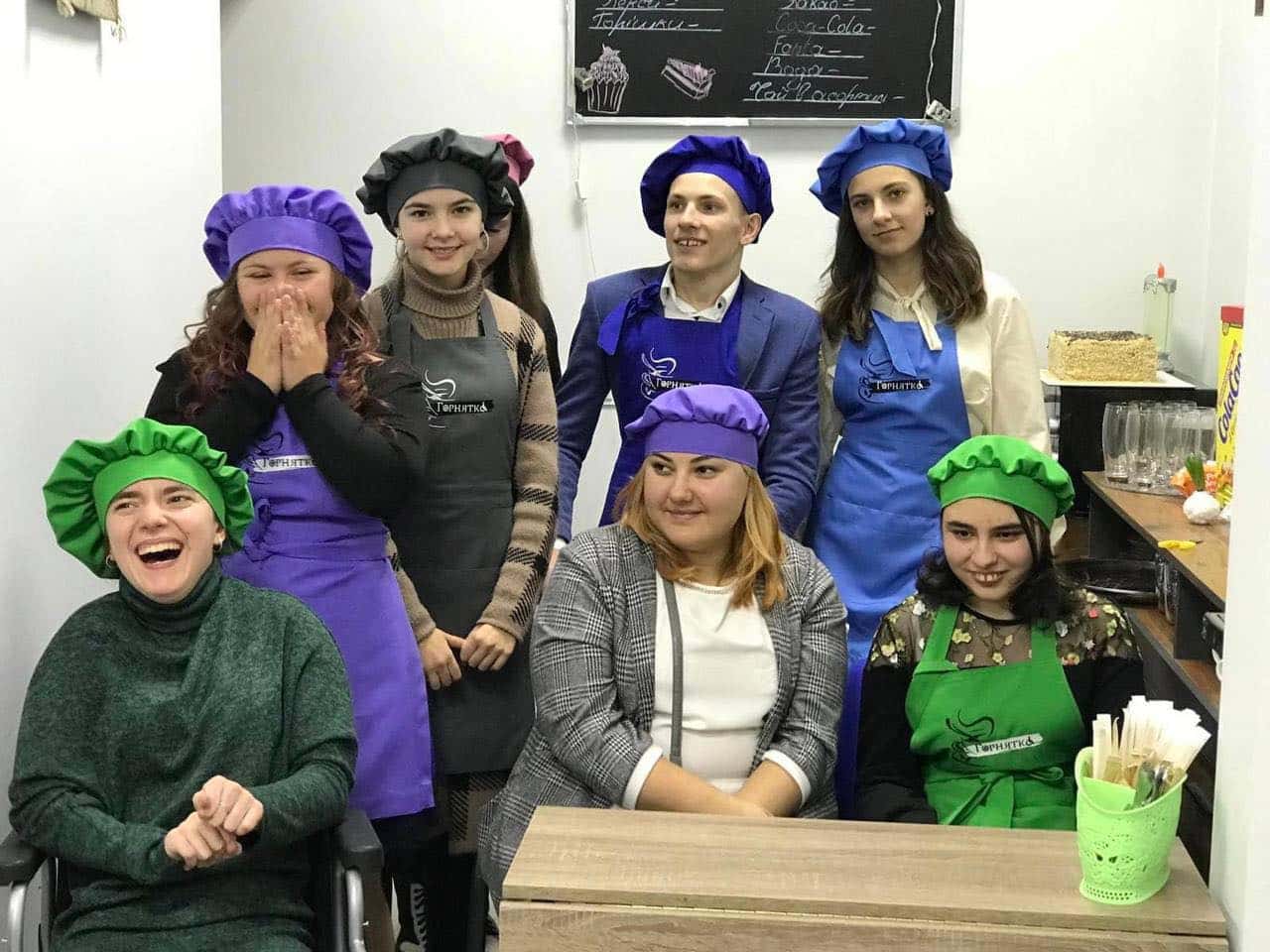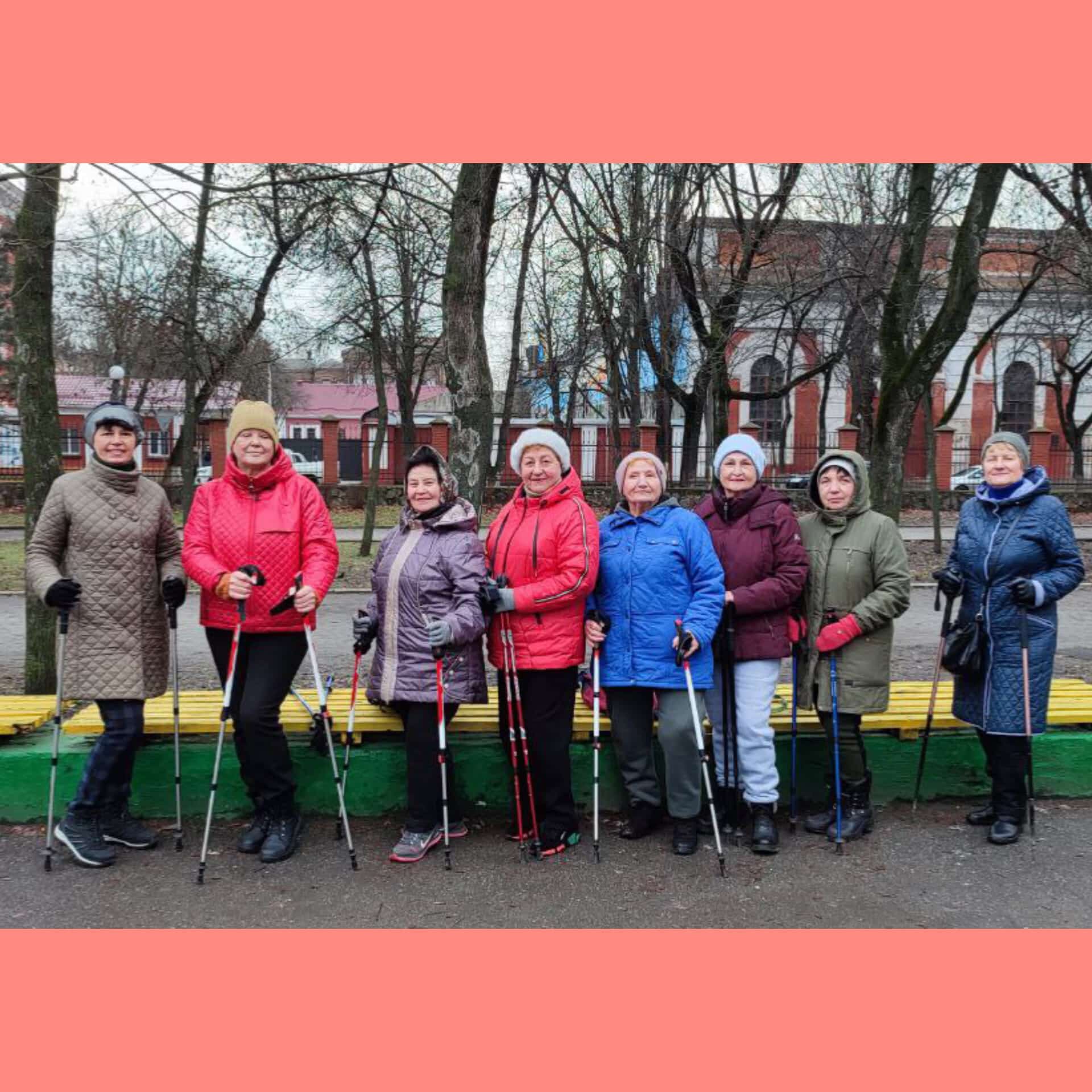The problem of a psychological state of other people is underestimated with the society often growing oblivious to it. Natalia Bondarenko, who is a psychologist and expert in developmental psychology and who also holds the position of a Chairwoman of the Board of the Foundation for Supporting Older People ‘Vik Schastia’ (the Ukrainian for ‘The Age of Happiness‘ – editor’s note) has explained to us why it is of great importance to provide help for older people, how we personally can help them and their attitude to death.
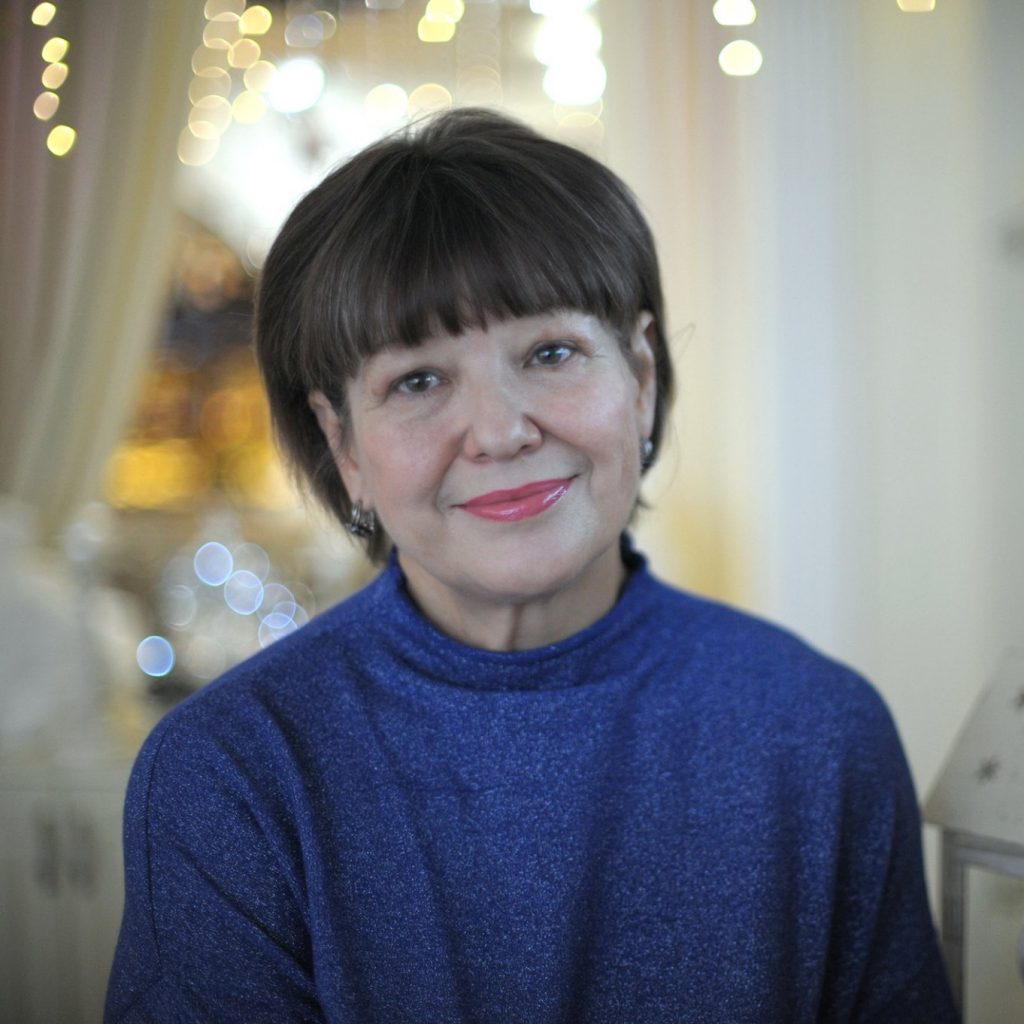
Let’s go through the definitions first. Is the term ‘the elderly’ ethical?
In my opinion the elderly are someone who are quite old, which is why I prefer to use the term ‘a person of respected age’. It is a person who matters and whose life is of significance. It is someone who makes things happen.
I know that you obtained a diploma of a psychologist not long ago. How did you end up doing what you do?
In my life I have worked in many jobs, in particular, I worked in the sector of regional tourism. However, this job of mine came to an abrupt end in Slovyansk when the war broke out and the next two years I spent working with an international organization ‚People in Need‘. Evetnually I came to realize that I stood no chance of pursuing a career in the sector of international aid. Being an older person myself, I had no place to go to in Slovyansk. Of course, there were international communities and hubs being established, people would gather together in libraries but there was nothing new going on. The world was changing, however, we were idling our time away.
Therefore, I had my own public organization registered which is called the Foundation for Supporting Older people’Vik Schastia’. And then I set out to study public activities. Work in the NGO-sector is not only about bursting to go into action, it’s also about strategic planning, communication and project management.
Apart from that, I enrolled at the Slovyansk pedagogical university to do a master. At the age of 58 I got a degree in psychology.
It is of vital importance to be conversant with the psychology for older people. I have spoken to many older people and I have seen their age-related psychological distinguishing characteristics. I have analyzed them and put this knowledge to practice while managing my public organization. If you compare the older person living 50 years back and the one living now you will come to understand that these are two entirely different people. In order to understand them in the modern context this development trend of psychology should to be developed.
Why is there a need for similar public organizations in the first place?
Older people are totally neglected by the community they live in. We neither see, nor hear them. Our society has this stereotyped image of someone’s life coming to an end when they retire. People think that it is enough to have kids, grandchildren, a TV set and a plot of land. Surely these are nice things to have but there’s still so much ahead of them. There is a term called a personal development of a person – it starts with birth and it goes on until you draw your last breath. This way or another a person has to be occupied with something that will help them feel the life they are living. I’m talking about development and new skills which help us keep up with trends, society and our community, as well as understand what’s going on around us.
In other words, should we immerse older people in modern life?
We really should, because when an older person gets involved in the activities of a community, it exerts a considerable impact on their psychological state. If we consider the Maslow pyramid of needs, basic needs of older people are already met. However often they may lament about their small pension, effectively every older person has a house, a garden around it, grown-up kids and food to eat. The security needs of the vast majority of people are also met.
However, there is more to it than meets the eye: every human being is in need of self-actualization.
Why does your grandmother give you pieces of advice when you’re tilling your plot of land or when you are taking care of your kids? She wants to be needed. If she feels that she is needed by society and if she realizes her contribution to its development, this circumstance impacts her psychological state in an entirely different way. She rejoices. She gets a bright perspective on life. Not everyone can experience that. Oftentimes it is very hard to achieve, as the burden of the Soviet times is still placed on us. I lived through it myself. Back then we were taught not to stand out. There could be no place for psychology, people were trying to sit their sunset years out on the quiet.
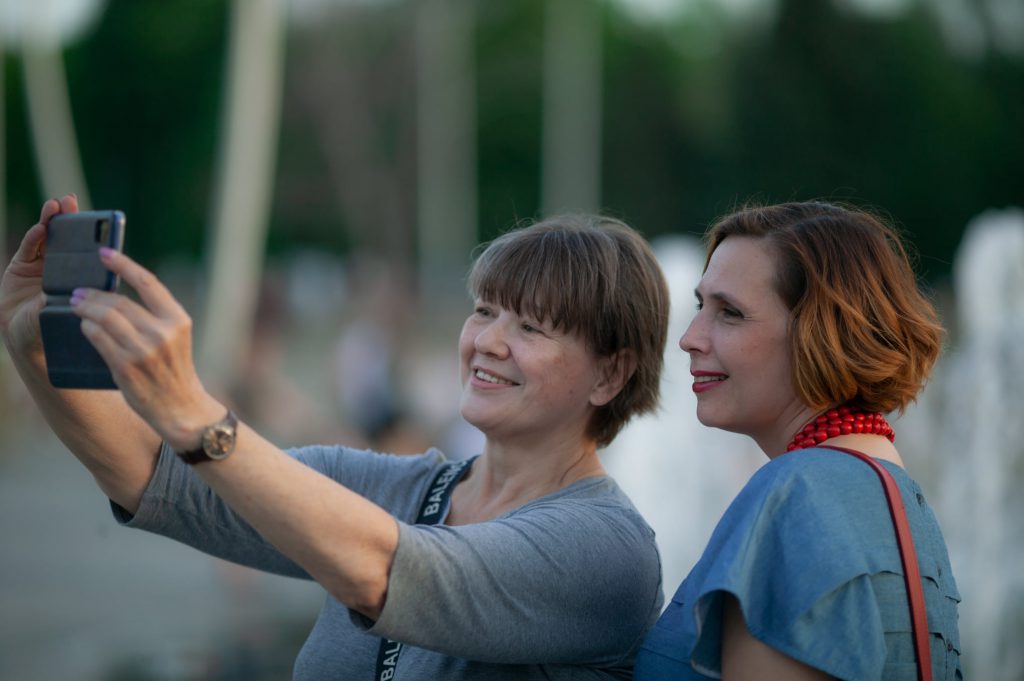
What are the problems that the people of respected age encounter most often?
It is important to teach older people to communicate with society and not to shy away from it. They are in great need of it. Getting together for a mere cup of tea is already a big achievement. And if they can acquire new skills, if they learn how to use a PC or a smart phone, when they do Nordic walking, pilates or fitness for grown-ups, when they participate in trainings, it is a huge leap forward. This process provides a fresh perspective on a person and forms a new way of them seeing themselves, while also improving the climate inside their families. When your grandma is involved in some activity, if, for example, she has an appointment, she drives satisfaction from this fact, which, in turn, contributes to the quiet climate within your family.
For older people it is important to make friends among their peers, which is quite hard to do when you’re 60 or 70.
Young people may well go to a bar or a club where they meet up other people. They can make friends at different sorts of events. However, older people are not in the habit of doing that. They have no place they could go to. That is why it is important to establish special communities for older people where they can talk to one another, meet new people, spend time together, go for a walk to pick mushrooms together or visit one another.
They have to feel inclusivity and support. These are the things that 30 or 40-year-olds feel. When you have reached the old age you, get a feeling that all is lost.
As far as I understand the problem also lies in the fact that they are lonely, doesn’t it?
Exactly. Loneliness can be felt regardless of whether you live in a family or not. An older person wants to talk to people, they want to communicate with others, to tell a story, etc. However, you can do that only if someone listens to you. Also, on the one hand, they feel lonely, and on the other hand, it is difficult for them to start doing something about it.
Their psyche has already created a bubble in which they live and from which they are afraid to escape.
It’s about leaving your comfort zone. In this comfort zone a grandma can be sitting and reminiscing about her young years or about how she went dancing. They are afraid to leave the zone because a mental mechanism ‚What will others say?’ comes into play as well as other psychological protection mechanisms.
Therefore, I always encounter the situation when a person is lonely and he or she is terribly afraid of letting someone in their lives. The only way out for such people is to get acquainted with their peers so that they feel comfortable while them.
However funny the youths may be, after communication with them we still feel lonely. But when we are together, we think back to the olden times, we share with our current feelings and make plans for the future.
We used to live in the same times, we found ourselves in the same social context and such an approach works perfectly fine.
How does the perception of life change when you’re old?
We can look at a person’s life span as a straight line. At the beginning of this line the person is born and they die at the end of it. Let’s face it, any human being dies, which is normal. Let’s assume that this line lasts on average for about 80 years. When you are 20, you are at the very start of your life span: you don’t have much of a life experience, you have 60 years ahead of you. Mentally you live in the future – you make your plans, you have ambitions, you want to graduate and to start doing something new; you are planning to start a family etc. When a person is 70, they find themselves at the end of their life span, they live in the past and they reminisce. In their thoughts they were still back in the past when things were good and nice, there was cheap bread and the trees were still big (a reference to the 1961 Soviet drama film – editor’s note). Most importantly, they think back to their younger years because they were living in the future back then. They used to be young and they want to go back in time and to relive the feeling of being young once more.
It is worth reminding older people (in particular, this is my task as well) that we are living here and now. You may be 60, 65 or 70 right now, but let’s live the remaining years to the full. You have 20 years to go and you are sitting idly by! It lies in our power to help people of respected age to see the future by changing themselves, by planning and achieving their goals. They can learn how to use a PC, how to send emails, how to pay for the utilities via their smart phone etc. The more new skills they acquire, the more boundaries they overcome. They start to see things in a new light, they begin to notice lots of new opportunities.
Why couldn’t they see them before?
Over the years you acquire a substantial amount of experience. You may feel weary and your social level gets low. At this point of time you may have been through lots of trauma – war, bereavement or financial crisis. Nevertheless, all these psychological traumatic experiences seem to have bearing on us. A person has gone through all the stages of this experience. With the passing of time things do not seem that traumatic to you and other things come to the fore. For example, the feeling of loneliness. Instead even death no longer seems that frightening. That’s the way our psyche works. When you are getting prepared for your last days on earth, the feeling of death approaching no longer seems so traumatic. It is now more important how exactly we are going to spend this last stage of our life span. Either we are going to lie on the couch watching TV or we will get a new lease of life and have the feeling that we are not living our life in vain.
While working with the Pension Fund of Ukraine I came across a term called ‚remaining time to live’ that was used to refer to the period of life between retirement and death. I was so appalled by it. It was like my goal was to retire and then to spend my time sitting on my hands and waiting for death. It is for this reason that I now say that either we wait for death or we live. And it’s totally up to us how exactly we are going to spend the ‚remaining time to live’.
When you have the future ahead of you, you don’t have time to die.
In what way does a job of a psychologist working with youths differ from the one exercised by a psychologist working with other people?
In terms of general psychology these two jobs are not dissimilar. You may experience the need to communicate with others at any age – be it support from your friends or the need to acquire new skills or the need for self-development.
A more in-depth involvement of a therapist is required when a person has experienced trauma or has been bereaved. This requires special treatment.
Actually, stereotypes about older people and youths abound. Somehow people are used to seeing grandmas wearing headscarves and dancing to harmonica. I’m not saying this is bad. It’s just quite a stereotypical image. For example, people from my circle of contacts never dance to rock ‘n’ roll.
What’s your opinion of the nursing homes for the elderly?
I think the idea as such is quite good, but everything depends on the format. I have been to some of such nursing homes. Some of them even have computer rooms and progressive medical complexes, also offering massages for the elderly. But it’s not the point. In our country people are used to sending the elderly into these homes and letting them die there. These homes are supposed to establish a sort of community for those people so that they communicate with one another and feel comfortable. They need to bring in a psychologist, conduct different art classes and engage the elderly in games so that they can create.
How can we help people of respected age?
Youths do not provide support to these people. They disregard them. It’s a vicious circle really. There is a stereotype according to which older people are media illiterate and not able to use a smart phone. The grandma’s task, so it is thought, limits itself simply to baking a cake, cooking borscht or picking up her grandchild from the kindergarten. Well, they are capable of more. You should just teach them! You have to dedicate time to your grandpas and grandmas by not only bringing them medicines or food, but also by showing them just how many opportunities there are. Young people are always seduced by the option of doing everything by themselves and quickly instead of letting their grandparents do the job, without the latter having any objections to it. Grandparents may feel awkward because of the fact that they may not know something or that they make their grandkids spend their valuable time with them. However, it is important to communicate within any family. Just having a cup of tea with your grandma is a good thing – encourage her recount stories from her past.
However, it is even better to let other people acquire new knowledge and skills together with their peers.
You may have different relationships with your kids and your grandchildren. You can love them without measure, etc. However, it’s a quite different story when we browse in our smart phones without any pressure and learn stuff at a leisurely pace. Here’s a good example for you – a festival called ‚Khochu i Mozhu’ (the Ukrainian for ‚I want and I can’ – editor’s note) was organized and held in our town by youths exclusively for people of respected age. It included master classes, photo zones, a concert, you name it. Through such an event young people did a good deed having put a coin in the karma bank while older people felt care. And care is the biggest gift of all.

